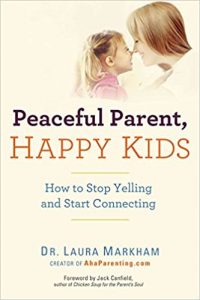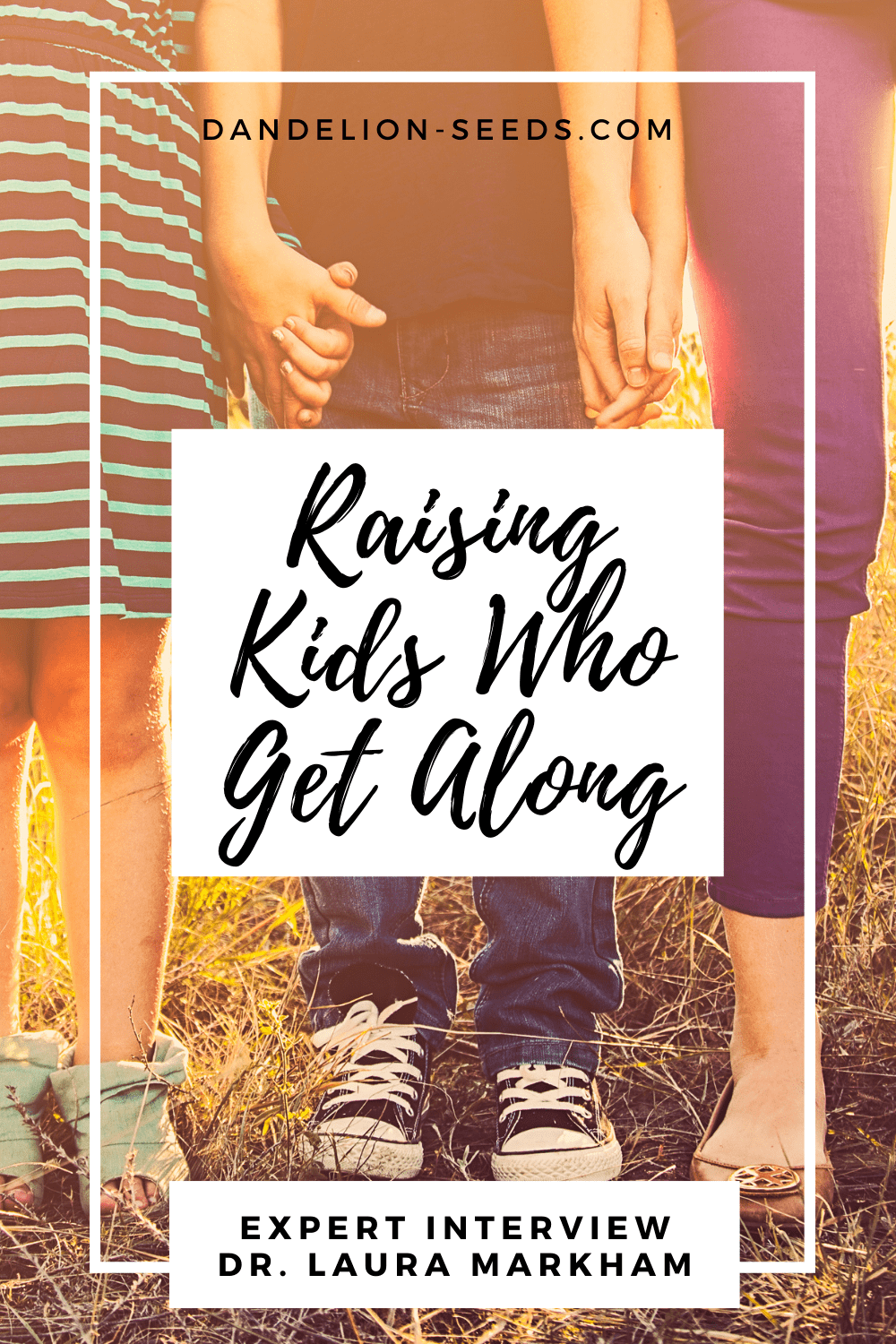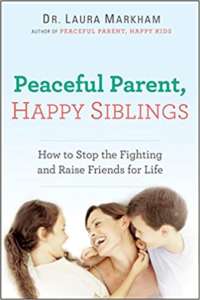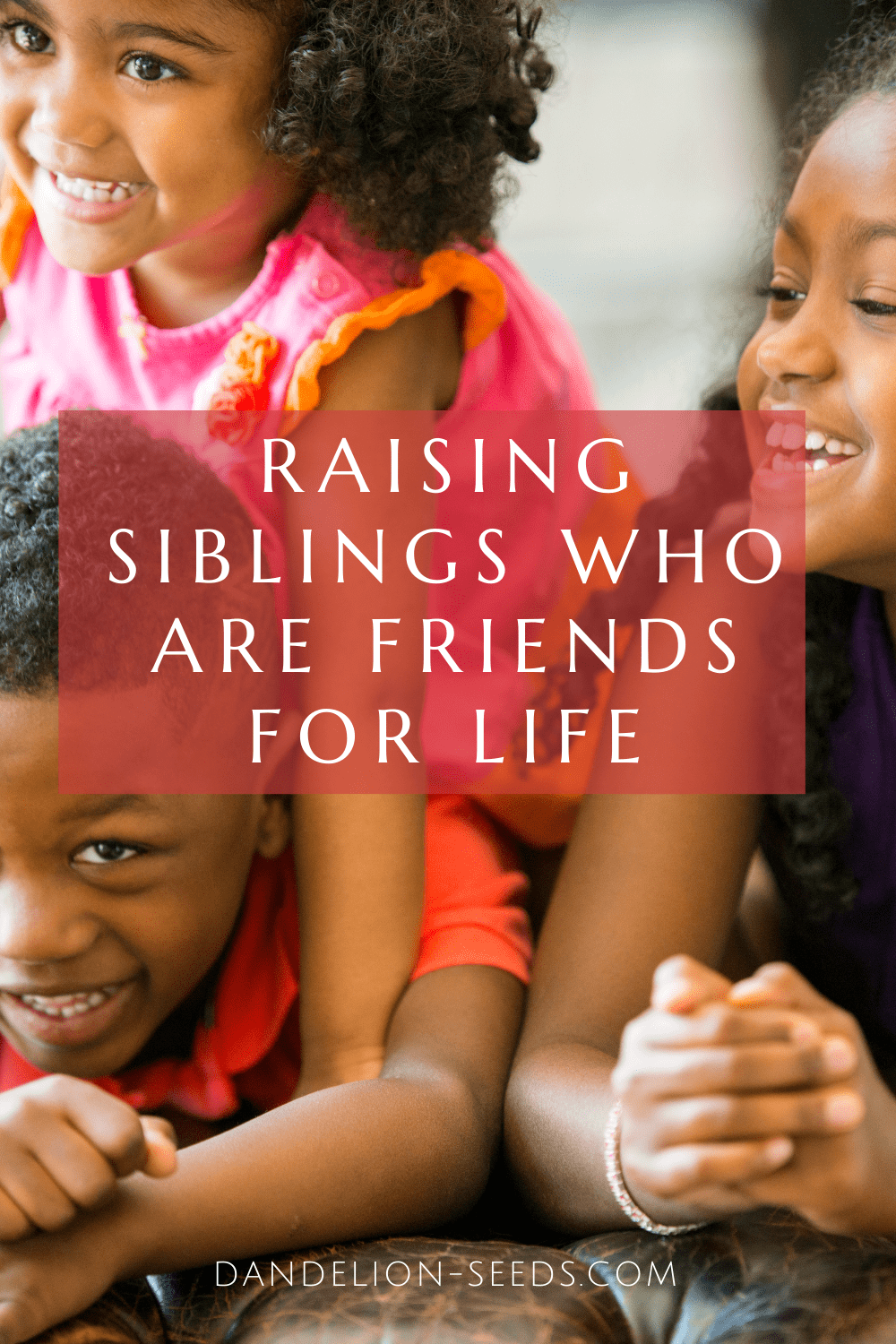
Sign in
Don't have an account with us? Sign up using the form below and get some free bonuses!

In this interview excerpt, Sarah at Dandelion Seeds Positive Parenting discusses with Dr. Laura Markham of Aha! Parenting how to raise peaceful siblings and avoid the comparison trap.
If you'd like to see the full interview, which covers the lifespan of nurturing the sibling bond from pre-birth through adolescence, you can view it here.
Hello!
I'm Sarah from Dandelion Seeds Positive Parenting,

and today I'm speaking with Dr. Laura Markham of Aha! Parenting about raising peaceful siblings; ones for whom conflict is low and affection is high. Dr. Markham is the best-selling author of three books, including "Peaceful Parent, Happy Kids" and its associated workbook, and our topic for today, "Peaceful Parent, Happy Siblings," which I absolutely love when it comes to the relationship that we're trying to foster among the children in our homes.
Let's talk about raising peaceful siblings now that our kids are a little older. We realize they really have some big personality differences.
How can we as parents avoid getting into the trap of "labeling" kids based on our perceptions of them -- the shy one, the brave one, the smart one, whatever? It would be hard to raise peaceful siblings if the kids feel pigeonholed.
Well, I think when you said our perceptions, you're correct.
It really starts with our perceptions because whatever we perceive and conclude as our belief system, will eventually come out of our mouths, right? And they will get that.
Even if you have only one child, I think you'd want to avoid labeling them. I don't think you'd want them to think, "Oh, I'm shy," whether it's one child or three and they're the shy one, right?
We don't need to be doing that labeling. But we know that even though we have opinions about our one child, it's tougher when there are two in stark contrast, as they always are. There is a contrast even if they're identical twins. We'll be like, well, they're identical twins, but she's the feisty one or whatever, right?
We're always going to be comparing. That's a natural thing to do as a parent. So, I think it's important to remind ourselves, 'This is a whole child...' - Dr. Laura Markham on raising peaceful siblings
So I think it's important to remind ourselves, "This is a whole child. This is the whole human being and yes, she's different than her sister in this way. She's doesn't walk into a room and immediately start discussion with a stranger. She hangs back and watches to see what's safe. And she has other things that she does where she may be watchful and considering and observant, right? So it's not just that one.

You wouldn't say "shy." You would say, "Oh, hmm. This one -- this one really pays attention to her environment." So now you've just reframed it into something positive. But you're not going to then turn to the other and say, "Oh, she just goes in and runs roughshod over everything," right? You're going to try to see who they are in their wholeness. And appreciate that.
A weakness is generally the flip side of a strength. If you've got a kid who's stubborn as all get-out, that's a strong-willed child. They're not easily influenced by their peers. That's a good thing. You you can always reframe the negative to see the positive, because it, in fact, is always the same. It's a flip side of the same trait. - Dr. Laura Markham on raising peaceful siblings
If we see the whole child, we're less likely to think of it as negative. That would be the important first step for the parent.
Related mini-course: 5 Ways to Make Your Home More Peaceful
The second step is, sure your kids are different, but it's the whole child that's different. We're not just deciding this one trait is the thing we're looking at, right? I would actually step back from that contrast and just, if it's something you're unhappy about, just focus on that child -- that one child with whom you're unhappy.
You don't say to your child, "Why can't you play your piano without a fuss when it's time for piano practice, the way your sister does? You know, the five year old sits down and practices the piano, but you're seven and you won't do it?"
No. In fact, what you say is, "I love the joy you take in the piano. I really want to hear. Let's do it." It's irrelevant what the seven-year-old does. You're just focused on the five year old.
Then when the seven-year-old is like, "No, I don't want to practice," what you say is "Hmm. You really don't want to practice today. Sometimes you really don't want to practice at all, do you? You know what -- you do need to practice because the teacher is expecting you to practice, but let's talk about how to make it work for you. What would make it work? Would it help if I sat next to you? Would it help if you lined up all of your stuffed animals on the top of the piano and they all watch you? Do you want to make a recording that we can send to Grandma while you're playing?"
sat next to you? Would it help if you lined up all of your stuffed animals on the top of the piano and they all watch you? Do you want to make a recording that we can send to Grandma while you're playing?"
You know, you can come up with all kinds of brainstorming. That was just off the top of my head. I'm sure every parent here could brainstorm with their child and come up with ideas.
But the point is, notice what I didn't say: "Why don't you do what your sister does," right?
I think it's really important here that we just remember that anything we're addressing is about that child. It's not about any other child.
If it's something negative, keep it to that child. I'm going to add if it's something positive, keep it to that child.
So the five-year-old is practicing her piano. You don't want to say to that five-year-old, or whatever child's doing the thing you want, 'Boy, I wish your sister would practice like you do with no fuss,' because what is that doing is putting your five-year-old, or your your 'good' child, into a very awkward position. In order to maintain their place in your estimation, they have to remain the good child, and their sibling has to remain the 'bad' child. - Dr. Laura Markham on raising peaceful siblings
Now, suddenly, they've been set up with a vested interest in undermining their sibling, and they feel guilty, also, that they just happen to love piano. They know they're not a perfect kid, right?
There are so many feelings you just created that are negative for the sibling relationship by comparing.
So when you find yourself doing it, bite your tongue. You don't ever need to compare. It always gets in the way of the sibling relationship. - Dr. Laura Markham on raising peaceful siblings

I love how real you've just made this, because you said "when you find yourself comparing." It's human nature. We are designed to notice differences from one tree to the next, much less between or among children.
It seems the key to raising peaceful siblings is in our part that we own as parents, and how we manage the relationships around us, and the words we use in those various situations.
Stay tuned for the next section of the interview, where Dr. Laura Markham talks more about peaceful siblings as the children get older.
In the meantime, make sure to check out our short but information-packed parenting courses.
Dr. Laura Markham is the founder of AhaParenting.com and author of Peaceful Parent, Happy Kids, Peaceful Parent, Happy Siblings and her latest book, the Peaceful Parent, Happy Kids Workbook.
